Identical twins compared weighted vs bodyweight workouts to see which is better for muscle building
Which workout is better for muscle building: weighted vs bodyweight workouts? Identical twins tried both to find out

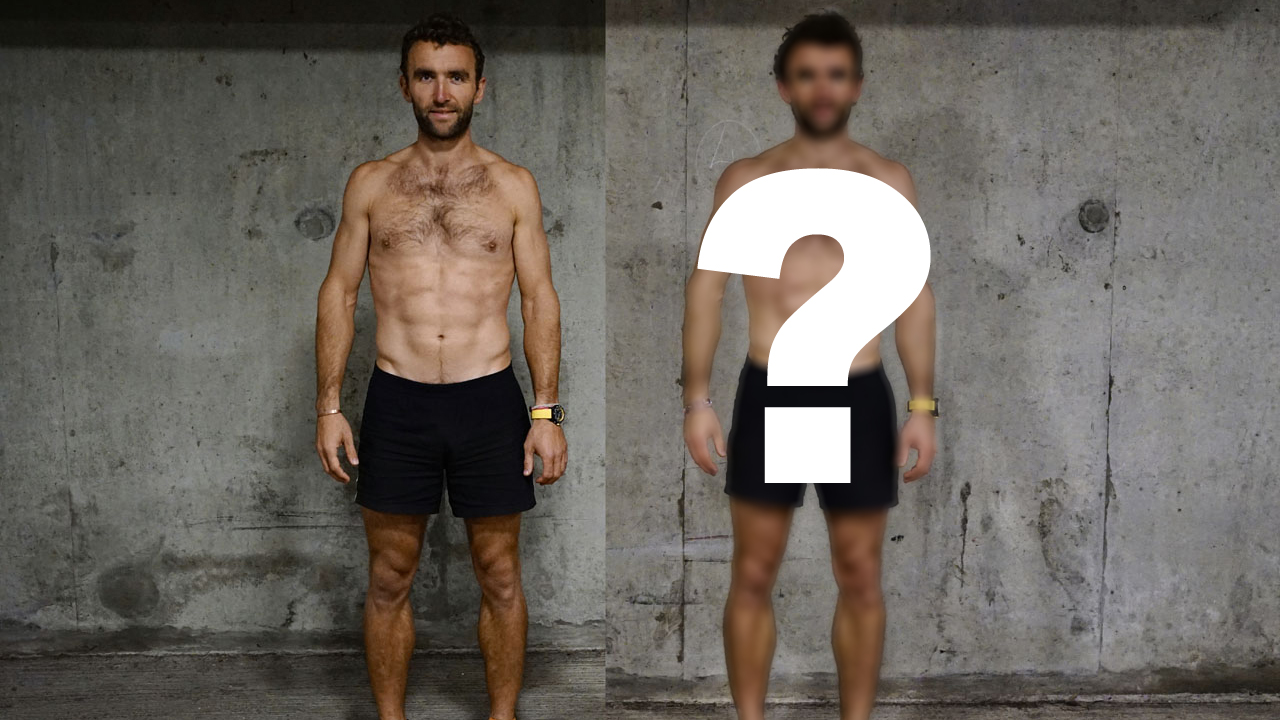
Weighted resistance workouts are said to be the best way to build muscle and get fit, at least according to people who can't imagine a workout without using barbells and dumbbells. However, advocates of bodyweight training will tell you that you don't need any weights to build muscle—who's right?
A similar question must have been circling the minds of the Turner Twins, a pair of "British adventurers who have undergone a host of world-first expeditions to aid medical and scientific research", a description lifted verbatim from the duo's rather fascinating website. The name might give this away, but Hugo and Ross are twins, better still, identical twins.
In a 10-week-long self-study, the twins compared the benefits of a weighted vs bodyweight fitness program, with Hugo working the weights and Ross relying on his body weight only to increase performance.
Identical twin studies will always have an advantage over research performed on 'regular' twins: the former group is essentially a copy of each other from a DNA point of view, so using identical twins in research can focus on environmental factors, and the results are often quite surprising. Which also seems to be the case here. We sat down with the Turner Twins to learn more about the results.
A post shared by 𝗧𝗛𝗘 𝗧𝗨𝗥𝗡𝗘𝗥 𝗧𝗪𝗜𝗡𝗦 (@theturnertwiins)
A photo posted by on
T3: You guys did different comparison challenges before. What made you try this one now?
Hugo: With COVID-19 closing gyms and changing our lifestyles, we wanted to know what the differences would be in training results if one of us did a home workout (bodyweight only) and the other trained with weights (we used an old weight set from our parents’ house).
Ross: I think we all assume that home workouts (bodyweight only), in general, would not be as efficient when compared to the benefits of using weights. We set out to answer this simple question and highlight their differences. We could then adapt our training programmes to be more efficient when training for our expeditions.
Get all the latest news, reviews, deals and buying guides on gorgeous tech, home and active products from the T3 experts
T3: What did the fitness program look like? Did you guys do the same exercises every day? How long was the program?
Ross: The program ran for 10 weeks, training about 4-5 times a week. The weighted program was based on an endurance program, so high reps and low weights. We aimed to keep as many of the movements and lifts in both programmes as similar as possible—for example, a bench press (weighted) and a press up (body weight). The programme was designed for expedition fitness, focusing on a full body workout, including strengthening our weaker areas (hamstrings, shoulders and core). An example of the workout the twins performed is below.
So, while Ross was working using bodyweight exercises such as Bulgarian split squats, hanging knee raises, lateral lunges and windscreen wipers, Hugo used a combination of weighted and bodyweight exercises, like hamstring stability ball curl, dumbbell lateral bounds/high knees, push-ups and medicine ball rotations.
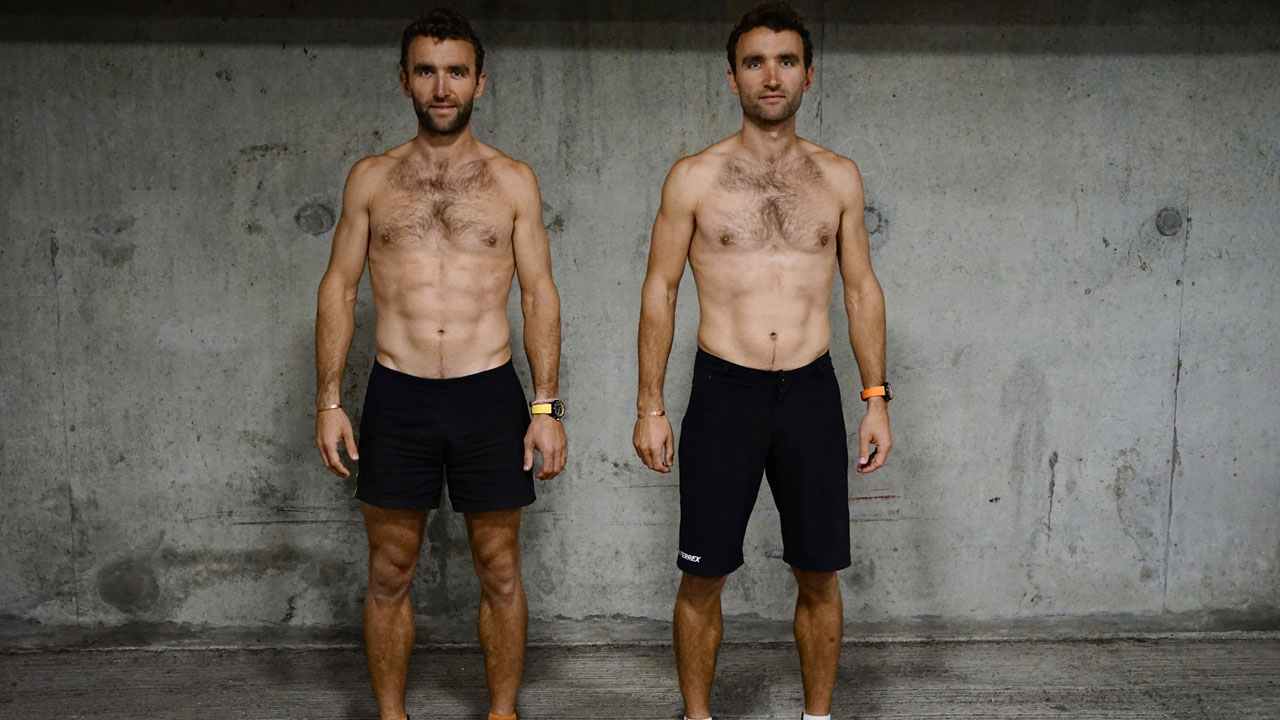
How it all started: the Turner Twins before the experiment begun (left: Hugo, right: Ross)
T3: Did you both have the same diet? Did you monitor macro intake, most importantly protein?
Ross: Although we didn’t specifically stick to the same diets, we both had deliveries from Mindful Chef, which provided the same meal plans and, most importantly, calorie intake. We ate the same things and had the same eating habits, so we ate about the same calories and food types.
T3: What equipment did you use?
Hugo: A whole range of home gym equipment was used, including Olympic barbells, squat racks, weight plates, dumbbells, kettlebells and various machines. Ross had to stick to his body!
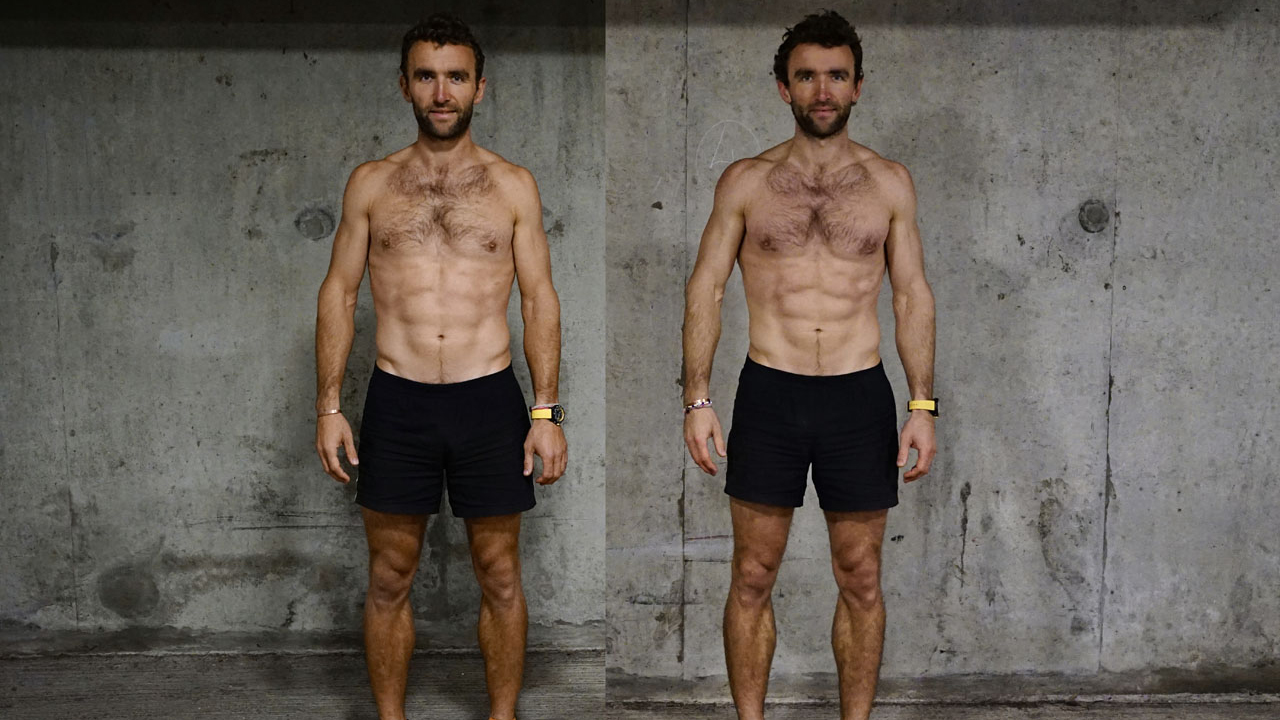
Ross has significantly improved his bench press 5-rep max and subliminal VO2 max
T3: Looking at the performance improvements, I must ask: does Ross regret not doing the weighted version of the program?
Ross: The only regret I had was that I didn't have a visual of what I was lifting. I didn't have an Olympic bar or weights to look at and use as motivation. I never had or got much motivation when in the gym because I was only using my own body. I'm a gym goer who needs to lift heavy weights to feel as good as possible.
T3: It seems Ross' VO2 max and bench performance improved more. Why do you think that is? I get the VO2 max increase, but the bench five rep-max difference is exciting.
Hugo: This was a significant result and a surprise for us, too. I would think it was because Ross's workout tempo was quicker. When working out using your body, you naturally lift and move quicker than if you had weight. This over 10 weeks might have produced a better nervous system response in his chest muscles and, therefore, gained more strength.
It's worth noting that we don't train our chest area particularly hard because having a muscular chest is not essential on an expedition. He might have just responded really well to press-ups and working that muscle group.
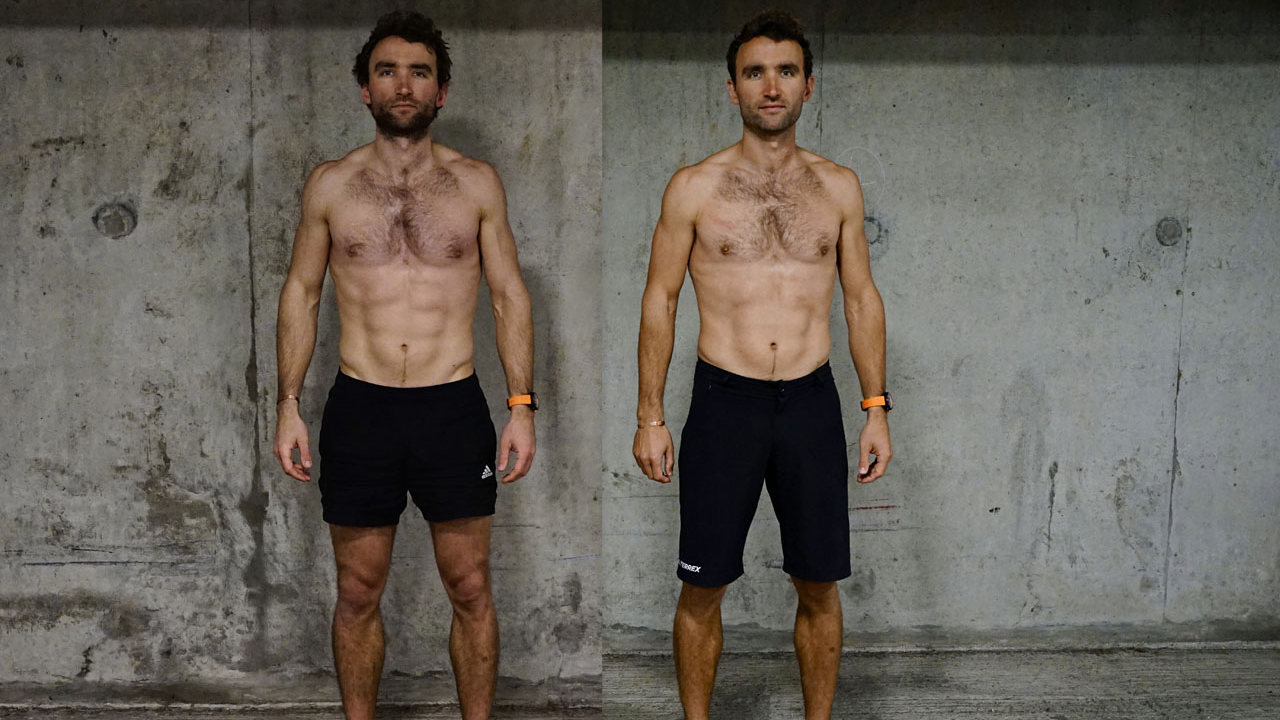
Despite doing weighted training, Hugo improved his press up performance more as well as his pull up and deadlift max
T3: What are your takeaways after completing the fitness program?
Ross: The biggest takeaway is that bodyweight exercises are hugely beneficial if you don’t have access to weights or a gym. Even if work commitments during the week mean you can’t get to a gym, doing a home workout will be hugely effective at keeping your fitness up and health levels higher.
T3: Have you got any advice for people trying to build muscle and improve their physical performance?
Hugo: Keep it regular – even if it’s a 15-minute workout or stretch, that’s better than nothing. Also, remember that the more you do, the easier it will become and the better you’ll feel. Using your body to train will get you results; it just takes a little longer than using weights.
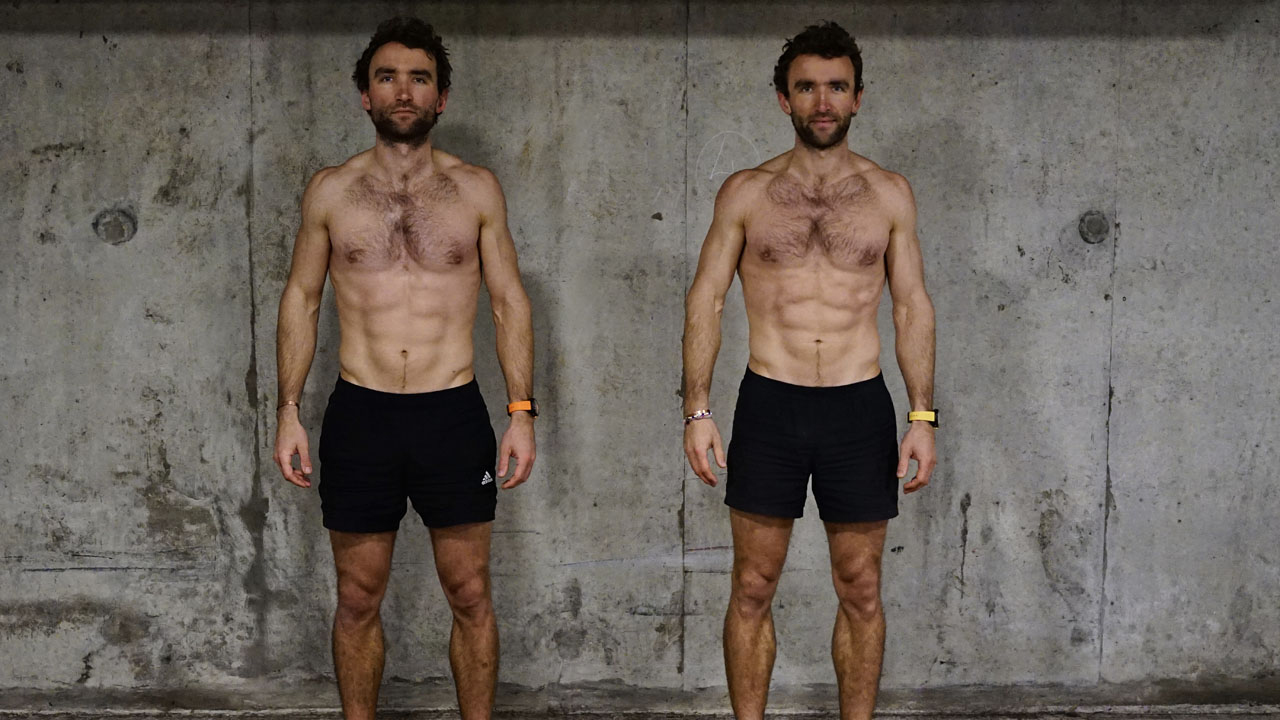
The end results, side-by-side (left: Ross, right: Hugo)
The final results
The percentage increase in performance from physiological tests (comparing weighted to bodyweight fitness programs) was as follows:
| Performance indicator | Hugo (weighted training) | Ross (bodyweight training) |
|---|---|---|
| Pull up max | +85% | +50% |
| Press up max | +150% | +60% |
| Bench press max | +50% | +33% |
| Deadlift max | +50% | +33% |
| VO2 subliminal test | +2% | +8% |
| Muscle mass | +6% | +2% |
| Fat mass | -8.5% | +20% |
Looking at the results, it's clear that both ways of training have benefits and are equally effective in increasing performance. It's no surprise that Ross's higher rep range and more explosive moves resulted in a VO2 max increase: using smaller weights and a higher rep range is said to increase muscle endurance the most (as opposed to strength/size).
It's also clear what happened in the bench press increase 'anomaly'. If you want to get better at the bench press, you must include other exercises in your workouts to avoid your body adapting too much. Performing other types of pecs exercises, such as push-ups, pecs flyes, dumbbell pullovers, etc., will strengthen the pecs but also provide a different stimulus.
Therefore, doing press-ups will result in better bench performance than before. That's good advice to everyone trying to overcome a workout rut: you will see results sooner by not trying to out-lift yourself but by changing muscle stimulus. Are you stuck on deadlifts? Try kettlebell swings. Are ab rollouts not challenging enough anymore? Try hanging leg raises or hardstyle planks.
And a final note: despite Ross gaining a significant fat mass, at least on paper, both twins started and ended up being pretty lean, a little over 10-11% body fat. Hugo's and Ross's body weight increased the same amount (6.6 lbs / 3 kg); judging by the pictures, they were and still are super lean. The takeaway is that numbers can lie, and it's always best to asses all other details before you make a judgement.
Get fit with T3
- Best full body workout
- Best kettlebell workout
- Best push pull legs workout
- Best calisthenics home workout
- 2-move kettlebell full body workout

Matt Kollat is a journalist and content creator for T3.com and T3 Magazine, where he works as Active Editor. His areas of expertise include wearables, drones, action cameras, fitness equipment, nutrition and outdoor gear. He joined T3 in 2019.
His work has also appeared on TechRadar and Fit&Well, and he has collaborated with creators such as Garage Gym Reviews. Matt has served as a judge for multiple industry awards, including the ESSNAwards. When he isn’t running, cycling or testing new kit, he’s usually roaming the countryside with a camera or experimenting with new audio and video gear.